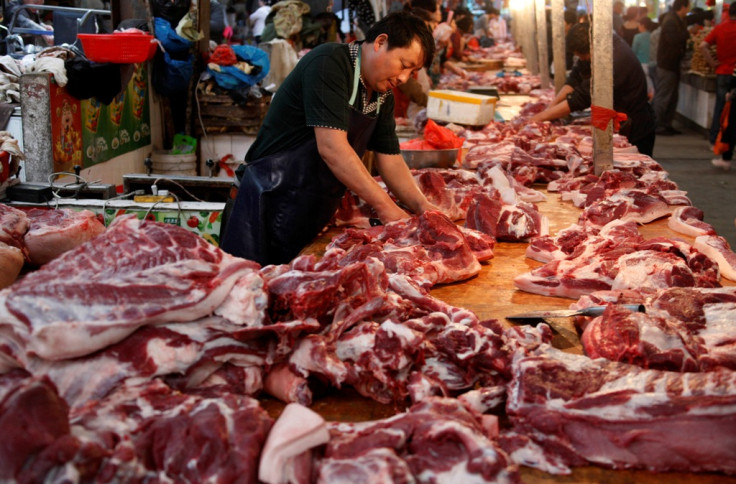China: August Inflation Unexpectedly Drops to Four-Month Low
CPI rose 2% in August from a year ago.

China's consumer inflation surprisingly dropped to a four-month low in August, another indication that the world's second-largest economy is losing momentum.
The consumer price index (CPI) rose 2% in August from a year earlier, slower than the 2.3% year-on-year increase in July 2014, government data showed. The latest reading missed expectations for a 2.2% increase.
Food prices rose 3% in August from a year ago, as against 3.6% in July.
The producer price index, which measures factory-gate prices, fell 1.2%, its 30th successive monthly decline after a 0.9% drop in July, data from the National Bureau of Statistics showed. The market had expected a 1.1% decline.
Beijing will put out data on new lending, industrial output and retail sales in the coming days.
Some economists said the Communist regime will have to pump more money into the system to ward off the risk of deflation. Others argued that low unemployment rates imply that the government will not have to do much.
Capital Economics said in a note to clients: "[The] inflation data suggest that price pressures remain subdued due to falling commodity prices and a relatively neutral monetary policy stance. As a result, even though pork prices and utility price reforms may drive inflation slightly higher over the coming quarters, it should remain under control."
Hao Zhou, ANZ's economist in Hong Kong, told Reuters: "As China's inflation continues to trend down, we believe that the deflation risk is rising and China needs to further ease monetary policy.
"More importantly, the soft PPI inflation indicates that the real interest rates facing the corporates have even picked up amid the economic slowdown, which will likely squeeze their profit margins over time."
Bill Adams, senior international economist at PNC said in a note: "As has become typical, prices of labor-intensive services are rising much faster than the rest of the consumer basket. The tailor was charging 5% more than a year earlier in August "tailoring services") and calling the handyman or plumber for help around the house ("home services and repairs") was 7.4% more expensive.
"Nothing new here: China still has a shortage of blue collar labor. Inflation in labor-intensive services continues to outpace overall price increases in China. If China had a reliable unemployment rate, it would be quite low right now."
"The August CPI and PPI reports suggest excess capacity is still a problem in the industrial sector, but also that the labor market is close to full employment as workforce entrants and real GDP slow in tandem.
"Inflation is well-controlled, and the limited public data on labor market dynamics suggest continued low unemployment. August data so far in hand - the CPI and PPI reports, PMIs, and trade data - hint that headline real GDP growth is picking up in the third quarter of 2014, and suggest a new round of government stimulus is unlikely in 2014," Adams added.
Premier Li Keqiang, speaking at a business conference in Tianjin on 10 September, promised to remake the Chinese economy and said that China will be able to meet the year's major economic targets.
Structural reforms have reduced the risk of a hard landing in the economy, Li said at the World Economic Forum event.
China's economy expanded by 7.5% in the second-quarter of 2014, after hitting an 18-month low of 7.4% in the first-quarter.
© Copyright IBTimes 2025. All rights reserved.






















